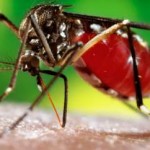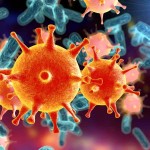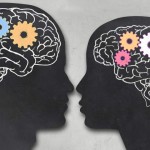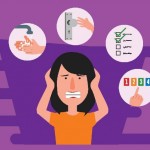Alzheimer’s Disease
Alzheimer’s Disease is the most common form of dementia (is a serious loss of cognitive ability in a previously unimpaired person, beyond what might be expected from normal ageing). It is most common in older individuals. Alzheimer’s disease is an irreversible, progressive brain disease that slowly destroys memory and thinking skills and eventually the ability to carry out the simplest tasks of daily living. Although scientists are learning more every day, right now, they still do not know what causes Alzheimer’s disease. Thus it is an Idiopathic disease.
Symptoms
Pre-dementia: Characterized by forgetting things occasionally.
Early dementia: Characterized by short-term memory loss.
Middle dementia: Characterized by difficulty remembering the recent events and also having trouble in recognizing their family members and friends.
Late dementia: Characterized by loss of the ability to walk, talk, and care for themselves. They rely on caregivers to handle even their most basic needs, including eating, washing, and going to the bathroom. Instead of communicating, they may repeatedly cry out, groan or scream.
Causes
The scientist has yet not understood exact reason of the Alzheimer's disease but with the time it has become clear that it is due to complex events occurring in the brain. In addition to this, there are certain causes like:
Genetic: The apo lipoprotein E (APOE) gene to is though late-onset Alzheimer’s. This gene has several forms. One of them, APOE ε4, seems to increase a person’s risk of getting the disease. However, carrying the APOE ε4 form of the gene does not necessarily mean that a person will develop Alzheimer’s disease, and people carrying no APOE ε4 can also develop the disease. Most experts believe that additional genes may influence the development of late-onset Alzheimer’s. Scientists around the world are searching for these genes, and have identified a number of common genes in addition to APOE ε4 that may increase a person’s risk for late-onset Alzheimer’s.
Environmental/ Lifestyle factors: Diseases like heart disease, stroke, high blood pressure, diabetes, obesity etc. have also shown to be linked with the Alzheimer's disease.
Diagnosis
• To diagnose Alzheimer’s, doctors may prescribe following tests:
Early, accurate diagnosis is beneficial for several reasons. It can tell people whether their symptoms are from Alzheimer’s or another cause, such as stroke, tumor, Parkinson’s disease, sleep disturbances, side effects of medications, or other conditions that may be treatable and possibly reversible.
• Beginning treatment early on in the disease process can help preserve function for some time, even though the underlying disease process cannot be changed. Having an early diagnosis also helps families plan for the future, make living arrangements and develop support networks. In addition, an early diagnosis can provide greater opportunities for people to get involved in clinical trials.
Treatments
There is no cure for Alzheimer's disease; though symptomatic relief can be provided. Current treatments can be divided into Medicinal, Psychosocial and Care giving.
Medicinal:
Cholinesterase Inhibitors - Acetylcholine is a chemical that keeps the nerve signals charged and helps the messaging system within the brain cells. Various medications to treat Alzheimer's are :
• Donepezil
• Rivastigmine G
• Galantamine
These are use to treat mild to moderate Alzheimer's (donepezil can be used for severe Alzheimer's as well.
Psychosocial:
Psychosocial interventions are used as an adjunct to medicinal treatment and can be classified within behaviour, emotion, cognition or stimulation oriented approaches.
Care giving:
Since patient with Alzheimer's has no cure, it gradually renders people incapable of tending for their own needs, thus care giving essentially is the treatment and must be carefully over the course of the disease.
Preventions
There is no definitive evidence to support that any particular measure which is effective in preventing. However, there are certain steps that could be taken which may help to delay the onset of dementia. Staying mentally healthy by:
• Reading
• Writing for pleasure
• Playing musical instruments
• Taking part in adult education courses
• Playing games
• Swimming
• Group sports, such as bowling
• Walking
• And other recreational activities
References:
National Institute of Aging
CDC
NHS









